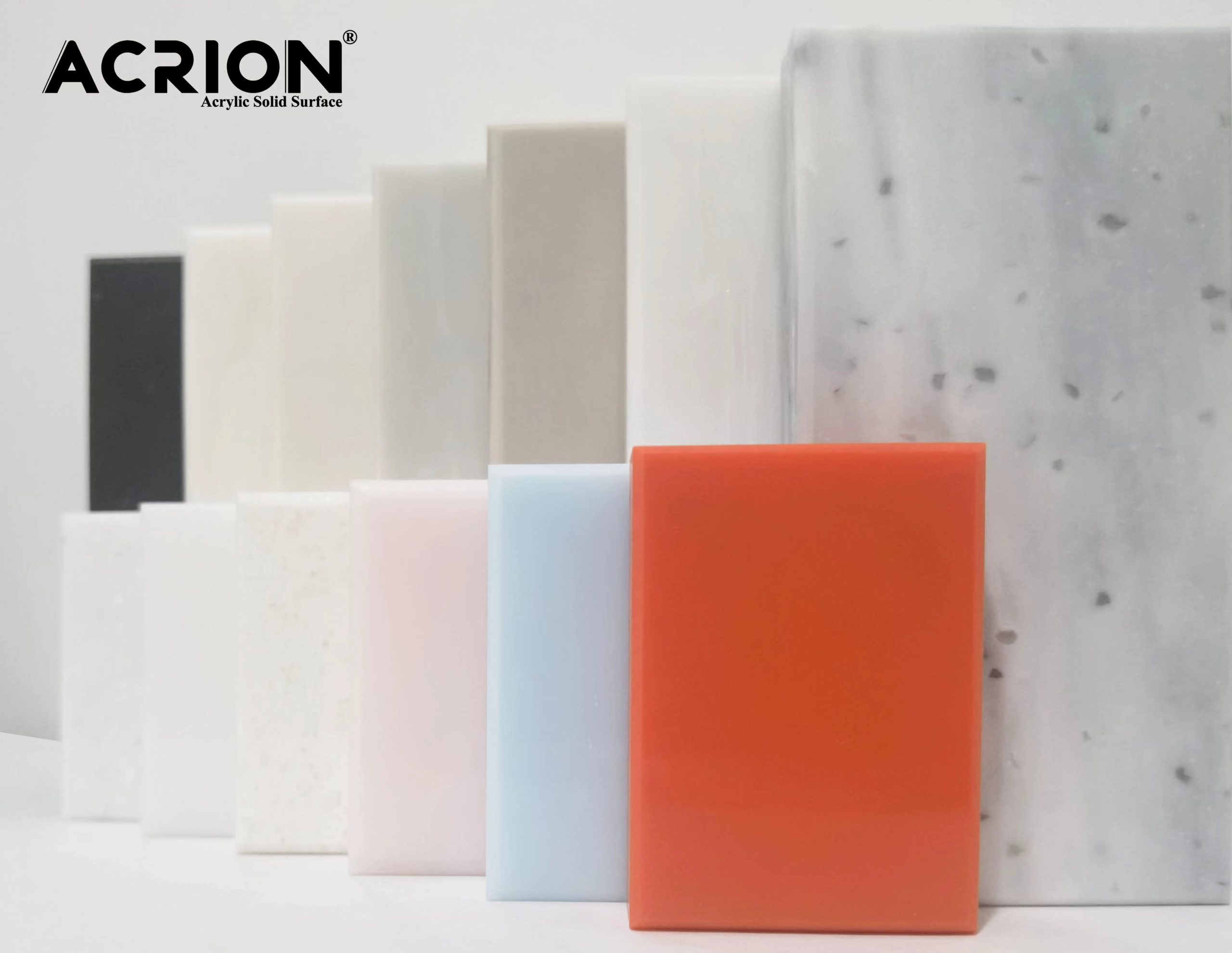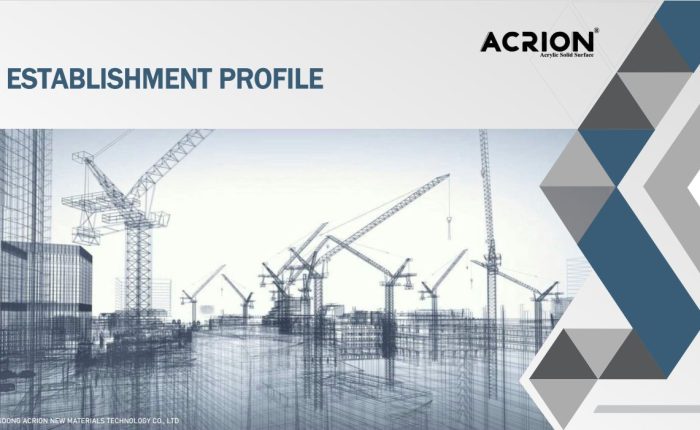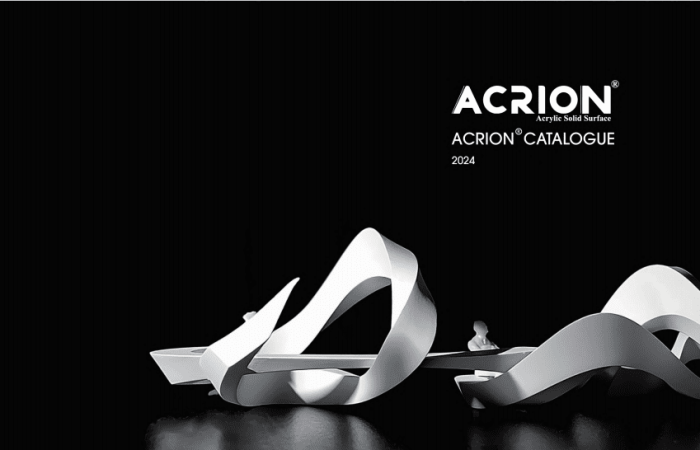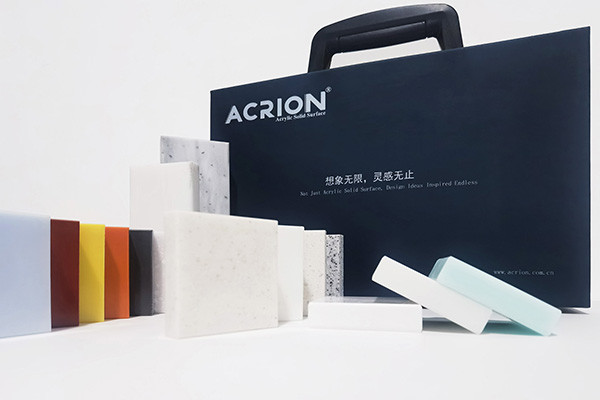Понимание стандартов тестирования твердой поверхности: производительность, сертификация и глобальные показатели
При выборе материала с твердой поверхностью для коммерческих интерьеров, медицинских учреждений или жилых кухонь понимание его эффективности - это больше, чем техническое любопытство - это критический фактор решения. Но что определяет высококачественную твердую поверхность? Как мы можем измерить долговечность, стабильность цвета, химическую стойкость или безопасность?
Это всеобъемлющее руководство исследует глобальные стандарты тестирования, которые регулируют материалы твердой поверхности, например ASTM D638 для прочности на растяжение, ASTM G155 Для вынимания ультрафиолета, ANSI Z124.3 для сопротивления поверхности и ISO 11341 Для цветовой устойчивости. Эти тесты - не только технические цифры; Они отражают, как поверхность будет работать в реальных средах, подверженных нагреву, свету, пятнам, воздействию и времени.
Благодаря этой статье мы проведем вас через основные сертификаты, пороги производительности и методы испытаний, которые наиболее важны в промышленности твердой поверхности. Вы также узнаете, как Acrion® Материалы проверены и подтверждены для соответствия или превышения этих строгих стандартов - УФ-стабилизированный, затухающий, безопасный для пищи Решения разработаны для современных поверхностей.
Независимо от того, являетесь ли вы дизайнером, архитектором, производителем или просто изучаете техническую сторону акрилового покрытия, эта страница поможет вам принимать обоснованные решения с ясностью и уверенностью.
Классификация стандартов тестирования твердой поверхности
Сплошные материалы оцениваются с помощью широкого спектра стандартизированных тестов, которые предназначены для оценки конкретного аспекта производительности, долговечности или безопасности. Эти тесты обычно классифицируются на четыре основные категории: механическая прочность, химическая устойчивость, Землема, и здоровье & Экологические сертификаты.
Понимание этих категорий обеспечивает основу для сравнения материалов между брендами и рынками. Ниже приведен обзор того, как функционирует каждая категория и какие стандарты обычно применяются:
| Категория | Цель | Ключевые стандарты |
|---|---|---|
| 1. Механические характеристики | Оценивает физическую силу, гибкость, твердость и стабильность размеров | ASTM D638, ASTM D790, ASTM D785, ASTM D648 |
| 2. Химический & Поверхностное сопротивление | Оценивает устойчивость к окрашиванию, чистящим средствам, сигаретным ожогам и бытовым химикатам | ANSI Z124.3, ISO 19712-3, CSA B45.5-11 |
| 3. Внимание & Стабильность цвета | Имитирует долгосрочное воздействие ультрафиолета, тепла и влажности для оценки изменения цвета (ΔE) | ASTM G155, ISO 11341, JIS K 6902, JIS K 6911 |
| 4. Здоровье, безопасность & Относящийся к окружающей среде | Проверяет безопасность материала для контакта с пищевым продуктом, распространения пламени и качества воздуха в помещении | NSF 51, ASTM E84, EN 13501-1, UL 2818 (GreenGuard) |
Каждая из этих тестирующих групп играет жизненно важную роль в определении пригодности твердой поверхности для конкретных применений-будь то стерильная больница, залитая солнцем кухня или коммерческий столец с высоким трафиком. Следующие разделы разбивают индивидуальные стандарты и что означают результаты для ваших проектов.
Ключевые стандарты тестирования объяснены
Теперь, когда мы классифицировали основные области эффективности оценки твердой поверхности, давайте рассмотрим ключевые стандарты, используемые в каждой категории. Эти стандартизированные методы - устанавливают такие организации, как ASTM International, ISO и ANSI, - это то, что претензии на производительность измеримы, сопоставимы и доверяют в разных отраслях.
1. Механическая производительность: прочность, гибкость и стабильность
Механические свойства определяют способность твердой поверхности выдерживать напряжение, воздействие и тепловую деформацию. Эти значения имеют решающее значение как для изготовления, так и для долгосрочной долговечности. Продукты с твердой поверхностью Acrion проходят батарею механических испытаний ASTM, в том числе:
- ASTM D638 - прочность на растяжение: Измеряет максимальное напряжение, которое образец может выдержать при разряде. Acrion записывает растягивающую силу 43,1 МПа, обеспечение надежной структурной целостности.
- ASTM D790 - прочность на изгиб: Оценивает силу изгиба материала. Acrion достигает 72,2 МПаПодходит для консольных приложений, таких как стеллажи или расширенные столешницы.
- ASTM D785 - Роквелл Твердость: Определяет поверхностную твердость; Арон достигает 94.6 по шкале М, сопротивляясь царапинам и отступам.
- ASTM D648 - Температура тепла: Тестирует температуру, при которой материал деформируется при нагрузке. Результат Арона 111,5 ° C., показывает хорошую тепловую стабильность.
Вместе эти тесты определяют, насколько хорошо материал может быть обработан, сформирован и использован под стрессом как в жилых, так и в коммерческих условиях.
2. Химический & Сопротивление поверхности: защита от пятен и повреждений
Сплошные поверхности подвергаются воздействию различных загрязняющих веществ и чистящих средств. Тестирование химической устойчивости гарантирует, что материалы остаются не зависящими от кофе, вина, пищевых масел, косметики и промышленных растворителей.
- ANSI Z124.3: Этот североамериканский стандарт включает в себя тесты на устойчивость к пятнам, сопротивление ожога сигарет, чистку и истираемость. Acrion проходит все тесты на устойчивость к поверхности, требования к соблюдению класса I.
- ISO 19712-3: Европейский стандарт, сосредоточенный на химической и пятнах. Материалы испытывают на 49 агентов, включая ацетон, гидроксид натрия и йод. Арон забил 5 класс (Нет видимых изменений) в большинстве категорий.
- CSA B45.5-11 / IPMS Z124: Canadian/US Composite Standard, который охватывает термическую и химическую стойкость для сантехники. Acrion проходит этот стандарт для ванной/кухни.
Эти оценки гарантируют дизайнеров и конечных пользователей, что материалы Acrion будут поддерживать эстетическую и гигиеническую производительность в высокопоставленных условиях, таких как здравоохранение, гостеприимство и продовольственное обслуживание.
3. Внимание & Стабильность цвета: борьба с ультрафиолетом, тепло и временем
Стабильность цвета является одним из наиболее важных факторов в долгосрочных инсталляциях, особенно для воздействий на солнце, на открытом воздухе или розничных дисплеях. Испытательные тесты имитируют годы экспозиции в контролируемой среде.
- ASTM G155: Использует ксеноновые дуговые лампы, чтобы имитировать солнечный свет и влажность. Акрион испытает на 1000 часов ультрафиолетового воздействия, поддержание ΔE*94 < 8- обозначение несовершеннолетнего или отсутствия видимого обесцвечивания.
- ISO 11341: Аналогично G155, но структурирован в формате ISO; Также рассчитывает ΔE с течением времени. Этот тест проверяет глобальные стандарты долговечности для архитектурных материалов.
- Jis K 6902 / K 6911: Японские стандарты, измеряющие задержку глянцевого, тепловое обесцвечивание и материал хрупкость при ультрафиолетовом/тепловом напряжении.
Значения ΔE определяют изменение цвета: ниже 1 является незаметным, 1–3 едва заметно, а выше 5 указывает на видимое обесцвечение. УФ-стабилизированные формулы Acrion обеспечивают длительную визуальную привлекательность в течение многих лет использования.
4. Здоровье, безопасность & Экологические стандарты: ориентированная на человека производительность
Помимо долговечности и внешнего вида, продукты твердой поверхности должны быть безопасными - для людей и окружающей среды. Сертификаты подтверждают, что материалы защищены от пищевых продуктов, пламенные и низкие выбросы.
- NSF/ANSI 51: Сертифицирует материалы для контакта с едой в общественных местах. Acrion соответствует и подходит для кухонь, лабораторий и медицинских поверхностей.
- ASTM E84: Измеряет пламя и развитие дыма. Acrion достигает Класс А- Самый высокий рейтинг пожарной безопасности для строительных материалов.
- В 13501-1: Европейская пожарная классификация; Акционные оценки B-S1, D0, то есть очень ограниченная горючая и дым.
- UL 2818 (GreenGuard / Gold): Тесты на летучие органические соединения (TVOC). Acrion сертифицирован с низким уровнем выбросов и способствует более здоровому качеству воздуха в помещении.
Эти сертификаты не только соответствуют требованиям соответствия, но и повышают право на проекты для программ зеленого строительства, таких как LEED, Well и Breeam.
Последние мысли: почему стандарты тестирования определяют качество
На все более регулируемом и ориентированном на производительность рынка строительства понимание стандартов тестирования твердой поверхности больше не является обязательным-это важно. От прочности на растяжение и устойчивости к пятнам до стабильности цвета ΔE и безопасности воздуха в помещении, каждая сертификация выполняет практическую роль в обеспечении того, чтобы ваш материал был надежно, безопасно и прекрасно.
Сплошные поверхности Acrion® спроектированы не только для того, чтобы встретиться, но для превышения - глобальные тесты, такие как ASTM G155, ISO 11341, ANSI Z124.3, и NSF/ANSI 51Полем Эти проверки отражают нашу приверженность целостности продукта, технического превосходства и долгосрочной ценности для архитекторов, дизайнеров и конечных пользователей.
Как производитель, мы верим в полную прозрачность. Вот почему мы приглашаем вас изучить наш полный спектр Сертифицированные материалы с твердой поверхностью, доступ Технические таблицы и отчеты, или Свяжитесь с нашими специалистами Для тестирования для конкретного проекта.
Независимо от того, указываете ли вы поверхности для медицинской лаборатории, заполненной солнцем кухней или роскошного тщеславия в отеле-выполнение начинается с доказательства. С помощью ACRION® вы поддерживаете данные, поддерживаемые тестированием и уполномоченные доверием.



